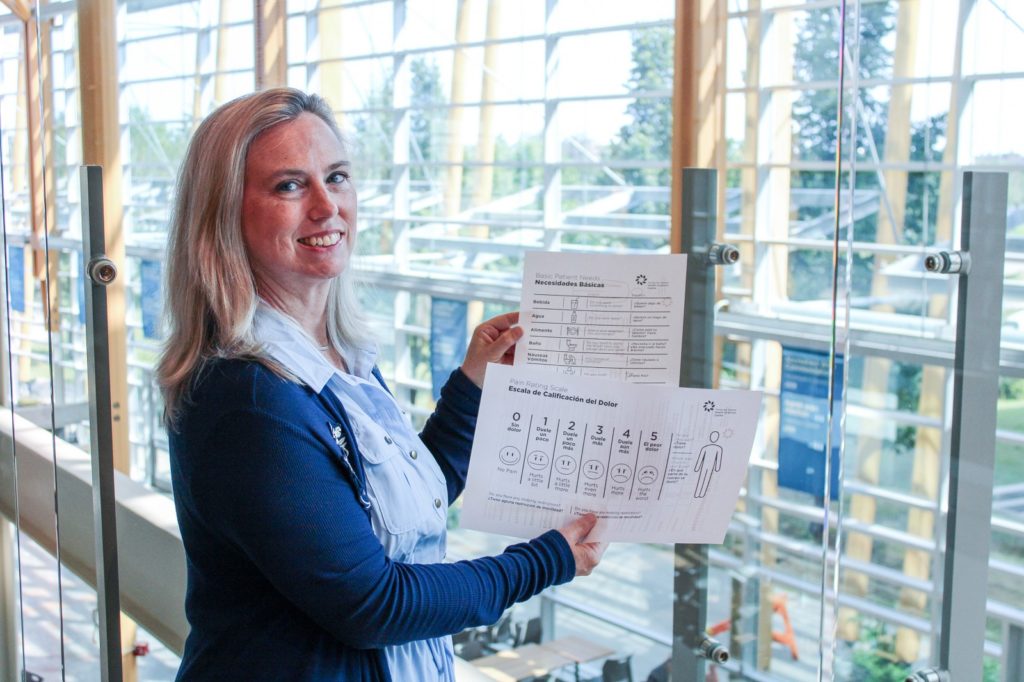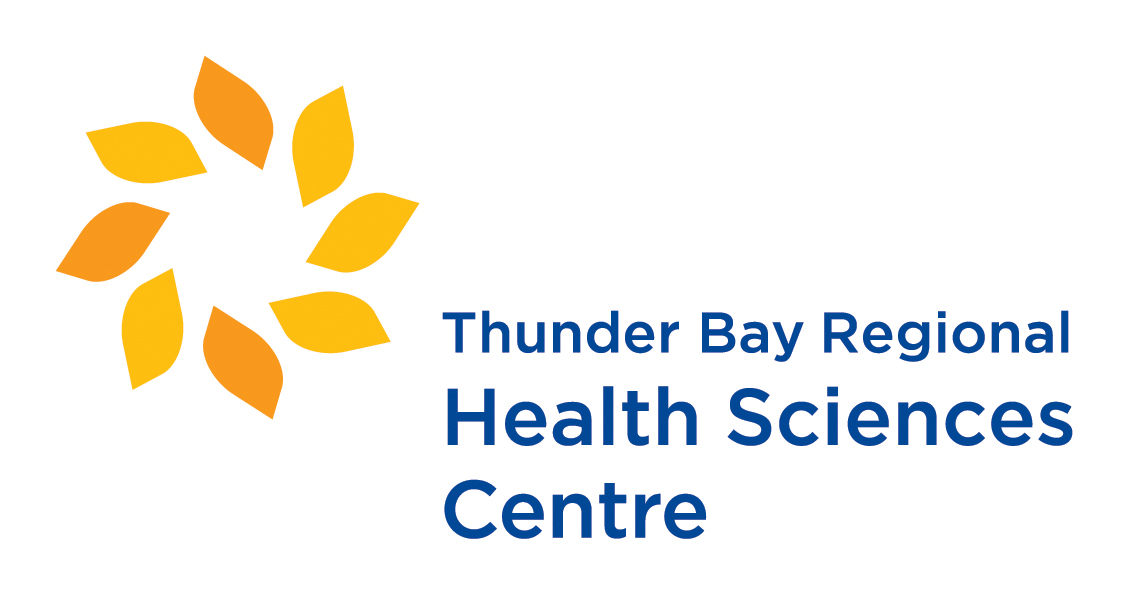Over the past several years, we have seen an increasing number of non-English speaking citizens and visitors seeking care at Thunder Bay Regional Health Sciences Centre. As English is not their first language, these patients and families often require the support of interpretation services. Providing culturally appropriate care is equivalent to safe care, and being able to communicate the needs of our patients and families effectively can help provide better care.
Recognizing this gap and enabled by a Family CARE Grant from the Foundation, Care Communication Cards were designed and printed in multiple languages (adapted from the Ojibwe “Basic Patient Needs” communication tool).
Care Communication Cards are laminated communication tools which display pictographs with corresponding words in English and an additional language, conveying basic patient needs or pain levels. If the healthcare provider is asking a question, using the Care Communication Card to point to a corresponding word, the patient can also use the card to help answer the question. These cards can also be used in conjunction with the bedside communication whiteboards. While a patient is staying at the Hospital, the Care Communication Card could be placed at the bedside or attached to the whiteboard for easy access.
Additionally, Care Communication Cards can be used both in the in-patient units and the out-patient areas as a quick, easily accessed communication tool. They are also useful for communicating with non-verbal patients. The card may be all that is required at the moment, but if further discussion is necessary, the cards can be used until interpretation services can be accessed. When no longer required for a particular patient, the cards can be easily cleaned and disinfected to be stored on the unit and re-used for a future patient.
For a language that is not represented, there is an English-only card with blank spaces for adding interpretation. If an Essential Care Partner wishes to translate the information to assist in the patient’s care, the completed card can later be scanned and added to the digital library. All current Care Communication Cards are also available on the iNtranet under Corporate Services – Interpretation Services.
Thank you to both the Patient Family Advisor Council and the clinical staff for your feedback and assistance in helping to co-design these resources, and thank you to the Thunder Bay Regional Health Sciences Foundation for the Family CARE Grant that made these toolkits possible.
Over the next few weeks, Care Communication Card toolkits will be handed out to units throughout the Hospital. Keep an eye out for the Patient Safety Improvement Specialist visiting your area!
For more information or if you have questions, reach out to Terry Fodë, Patient Safety Improvement Specialist, at extension 6754 or terry.fode@tbh.net.

